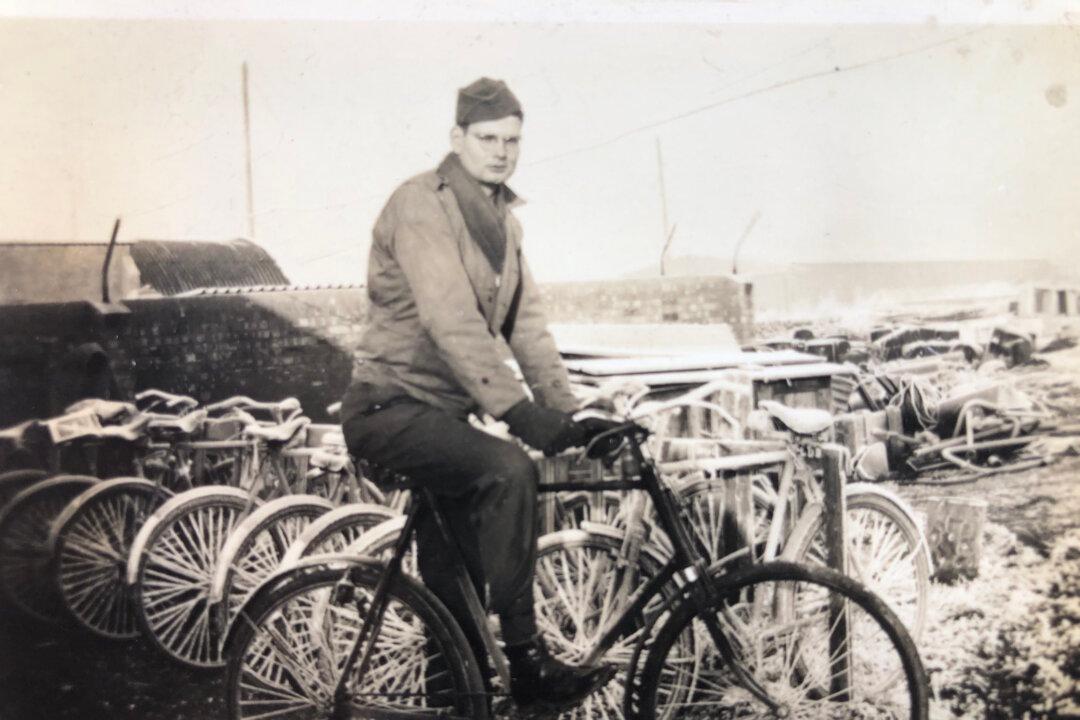I squinted at the stone memorial in the bright sun, trying to hold back my hair as the wind blew it around my face. My husband, daughter, and I had just pulled up to a small green building located behind the Thurleigh Airfield in Bedford, England.
Aside from the memorial I saw in the corner of the fenced lot, the field was empty.





